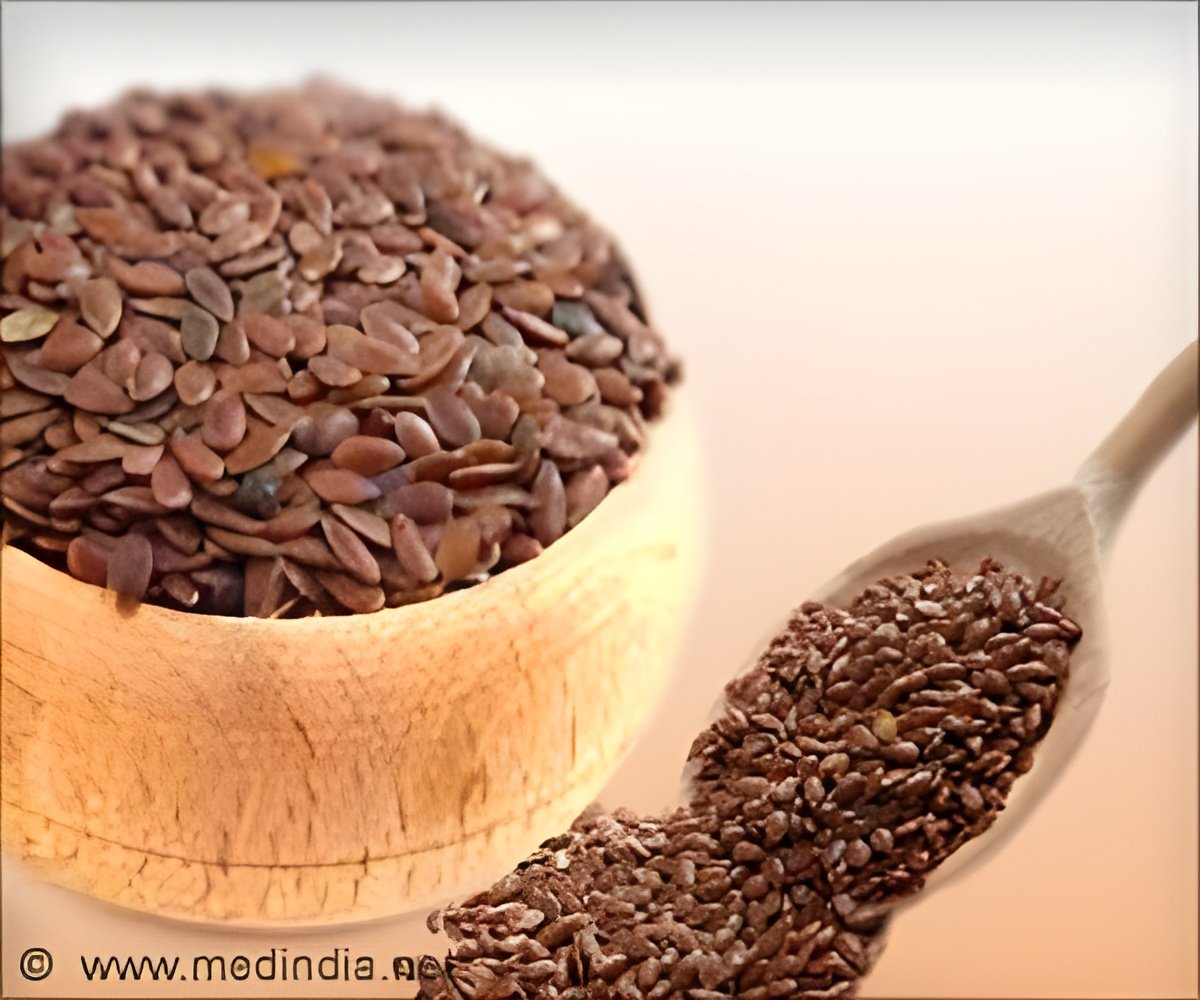Role of flaxseed in the relationship between gut microorganisms and mammary gland microRNAs has been uncovered by a new study.

Cecal microbiota and mammary gland microRNA signatures are related and modifiable by dietary flaxseed with implications for breast cancer risk
Go to source). “The gastrointestinal microbiota plays an important role in modifying many components of our diet to impact human health,” said Jennifer Auchtung, Ph.D., Assistant Professor in the Food Science and Technology Department at the University of Nebraska - Lincoln, the editor who coordinated the review of the paper.
‘Connection between the human gut microbiome and breast health, reveals that flaxseed lignans influence the interplay of gut microorganisms and mammary gland microRNAs related to breast cancer genes.
#gutmicrobiome, #breasthealth, #flaxseed, #breastcancer
’





“In this study, we found correlations between diets enriched in flaxseed, cecal microbiota composition, and miRNA profiles in the mammary gland that regulate many pathways, including those involved in cancer development. This preliminary study supports further research into the role that the microbiota plays in dietary approaches to reduce risk factors associated with disease.” Exploring Gut Health's Impact on Breast Well-being
The researchers studied the effects of flaxseed lignans on the microbiota of young female mice. Lignans, fiber-associated compounds found in many foods and particularly plentiful in flaxseed, are associated with reduced breast cancer mortality in postmenopausal women.The researchers found that lignan components generate specific miRNA responses in the mammary gland. miRNAs are short, noncoding RNAs that regulate gene expression by targeting the 3’ untranslated region of target mRNAs.
To determine whether the relationship between the microbiota and mammary gland miRNAs could be manipulated to reduce the risk of breast cancer, the researchers fed flaxseed lignan components to female mice to determine whether gut cecal microbiota profiles are related to miRNA expression in the mammary gland.
The cecum, the first part of the colon, located in the right lower abdomen near the appendix, is believed to have a role in the production of short-chain fatty acids and has been proposed to serve as a reservoir of anaerobic bacteria.
One flaxseed oil lignan requires microbial processing to release bioactive metabolites, small-molecule chemicals produced during metabolism that influence physiology and disease —in this case, having antitumor effects.
Advertisement
“If these findings are confirmed, the microbiota becomes a new target to prevent breast cancer through dietary intervention,” said Elena M. Comelli, Ph.D., Associate Professor in the Department of Nutritional Sciences and the Temerty Faculty of Medicine, University of Toronto, the corresponding author on the paper.
Advertisement
- Cecal microbiota and mammary gland microRNA signatures are related and modifiable by dietary flaxseed with implications for breast cancer risk - (https://journals.asm.org/doi/10.1128/spectrum.02290-23)
Source-Eurekalert















